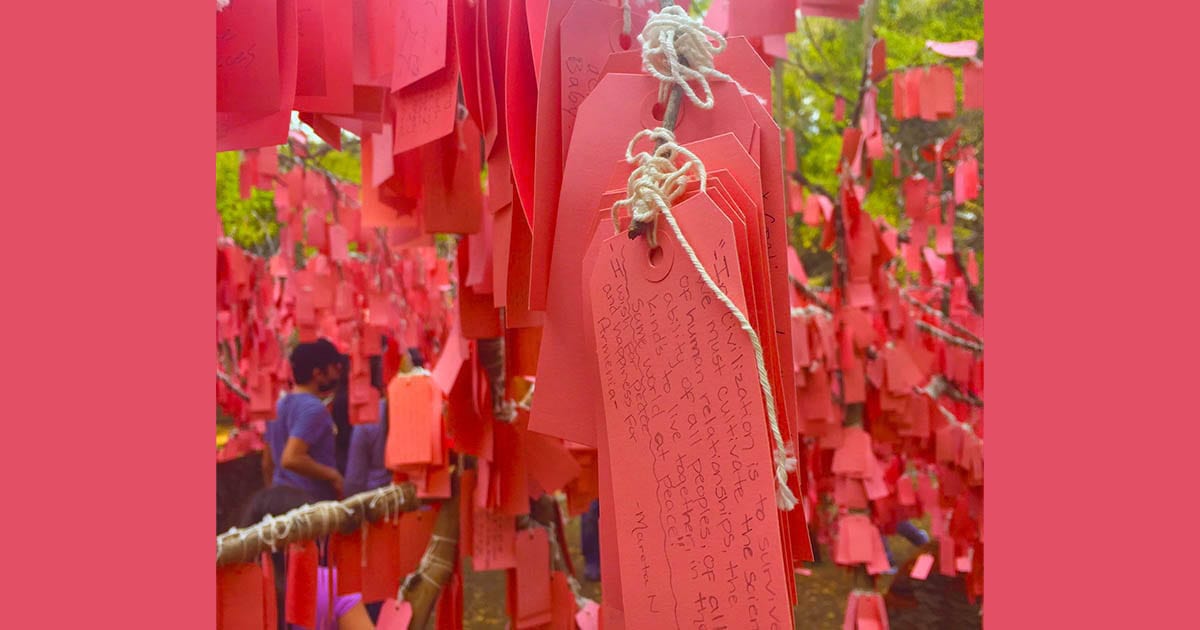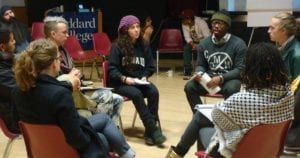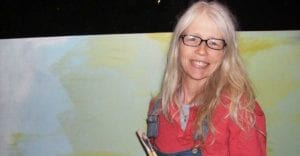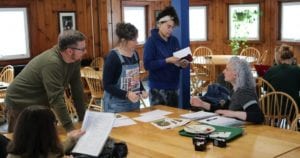 My mother, a lifelong liberal now in her 90s, was horrified by the outcome of the presidential election. As we commiserated, she said wistfully that my partner Winston and I could always move to Carriacou, the tiny island in the Eastern Caribbean where he was born and raised. Carriacou is part of Grenada, invaded by the U.S. in 1983. I reminded her of this, intending to suggest that (a) the problems far predate the recent election cycle and (b) you can run, but you can’t hide.
My mother, a lifelong liberal now in her 90s, was horrified by the outcome of the presidential election. As we commiserated, she said wistfully that my partner Winston and I could always move to Carriacou, the tiny island in the Eastern Caribbean where he was born and raised. Carriacou is part of Grenada, invaded by the U.S. in 1983. I reminded her of this, intending to suggest that (a) the problems far predate the recent election cycle and (b) you can run, but you can’t hide.
***
Today, calls abound for U.S. writers to mobilize against hate and looming assaults on free expression. Using the hashtag #writersresist, a group founded by poet Erin Belieu of VIDA has called for writers to come together and defend “[the] most basic principles of freedom and justice for all.”
This upsurge is encouraging—not just for the “fight back” message, but for the crucial recognition that effective resistance requires collective action; even those artists who typically work alone now need to refine our community building skills. But that realization in turn, begs the question: communities based on what? Imagined how?
Imagined Communities, as it happens, is the title of a book by historian and political scientist Benedict Anderson; the subtitle is Reflections on the Origin and Spread of Nationalism. Anderson’s influential notion of nations as imagined communities usefully encourages us to ask exactly whom we are, or want to be, in community with. It opens the way for the subversive idea that nations are not natural or eternal containers for our aspirations towards justice and our longing for solidarity. Given the artist’s obligation to, as Chinua Achebe has put it, “afford [oneself] through [one’s] imagination an alternative handle on reality,” we writers had better imagine our preferred communities with care: if we are successful, a lot of future people will wind up living in the containers we invent.
I bring this up now because, in my urgency to figure out what my communities of resistance are going to look like, I’ve been disheartened by the prevalence of nationalist rhetoric within a number of U.S. writing networks. Such appeals typically evoke a supposedly wonderful US of A–a country, it’s implied, that was on the right track until recently, or at least still possesses the potential to become an exemplar of just community. In a recent opinion column about countering Trumpism, Vietnamese-American novelist Viet Thanh Nguyen describes what’s at stake as the “contest for our American identity,” recommending “storytelling” as the path towards “opening hearts” instead of “building walls.” But why, I wonder, must opening hearts–a laudable goal–be centered on a deeply flawed nation state that is also a hugely destructive global empire? Is this the sort of community people need to imagine before they can commit to seeking justice and freedom?
Take a look at the PEN America Center’s #LouderTogether campaign, launched to combat “threats to freedom of expression and freedom of the press.” The web page reads, in part, “For many at home and around the world, the United States is becoming a locus of fear rather than hope….PEN America’s core mission—the freedom to write—now undergirds the preservation and promotion of every social good that has made our country great.” Why is PEN beating the drums for nationalism—and, let’s face it, not just garden variety nationalism, but the poisonous version known as American exceptionalism: the claim that it’s the natural place of the U.S. to serve as a beacon and “locus of hope” for the planet at large?
If it’s true that writers have a core responsibility to battle clichés and deflate received ideas, then it’s time we renounce the destructive fantasy of some lofty destiny for our deplorable empire. This is not a call to dodge the duties of citizenship; Virginia Woolf’s famous line, “as a woman I have no country” is only another form of wishful thinking. I do have a country, more’s the pity, and I am obliged to work to mitigate its harms, domestic and planet-spanning. However, my imagined communities of resistance will encompass the writings and activist examples of artists who’ve rejected the temptations of nationalism in favor of creating other modes of connection, other (and more realistic) frames for justice-seeking.
Here’s a brief sample of what I have in mind: Transnational feminists, writing borderlands (Gloria Anzaldúa, Theresa Hak Kyung Cha). Writers who’ve taken revolution seriously (Victor Serge, Frantz Fanon). Poets of the Caribbean/Pan-African diaspora (Kamau Brathwaite, M. NourbeSe Philip). Indigenous writers (like Leslie Marmon Silko, Elizabeth Woody, and Goddard MFAW alum Susan Deer Cloud) whose work re-centers us on the imagined community of humans with other living beings and the earth. Proponents of ecopoetics (indigenous and not) who remind us that the biosphere is our only authentic homeland. Contributors to Troubling the Line: Transgender and Genderqueer Poetry and Poetics (because nationalism revels in holding the line). The literature of an immigrant consciousness that is not about allegiance, but multiplicity (Bhanu Kapil, Elena Georgiou, Kazim Ali). The literature of worker solidarity (Meridel LeSueur’s “What Happens in a Strike,” Ousmane Semebène’s God’s Bits of Wood). Aimé Césaire’s Discourse on Colonialism. Samuel Delany’s and Octavia Butler’s and Ursula K. LeGuin’s and Sofia Samatar’s dreams of other worlds. The critics of other empires (Ma Yuan’s fiction about a Han Chinese encountering the trauma of Tibet; Svetlana Alexievich’s Second-Hand Time, featuring the voices of ordinary people experiencing the end of the Soviet Union). Fred Moten’s Undercommons, Audre Lorde’s House of Difference. Writers who frankly depict the U.S. as a morally failed state (Linh Dinh’s forthcoming Postcards from the End of America).
As David Wojnarowicz reminds us in Close to the Knives, his scorching memoir of queer desire, art making, and AIDS activism: “Soon all this will be picturesque ruins.” What communities shall we imagine to get us past America?







